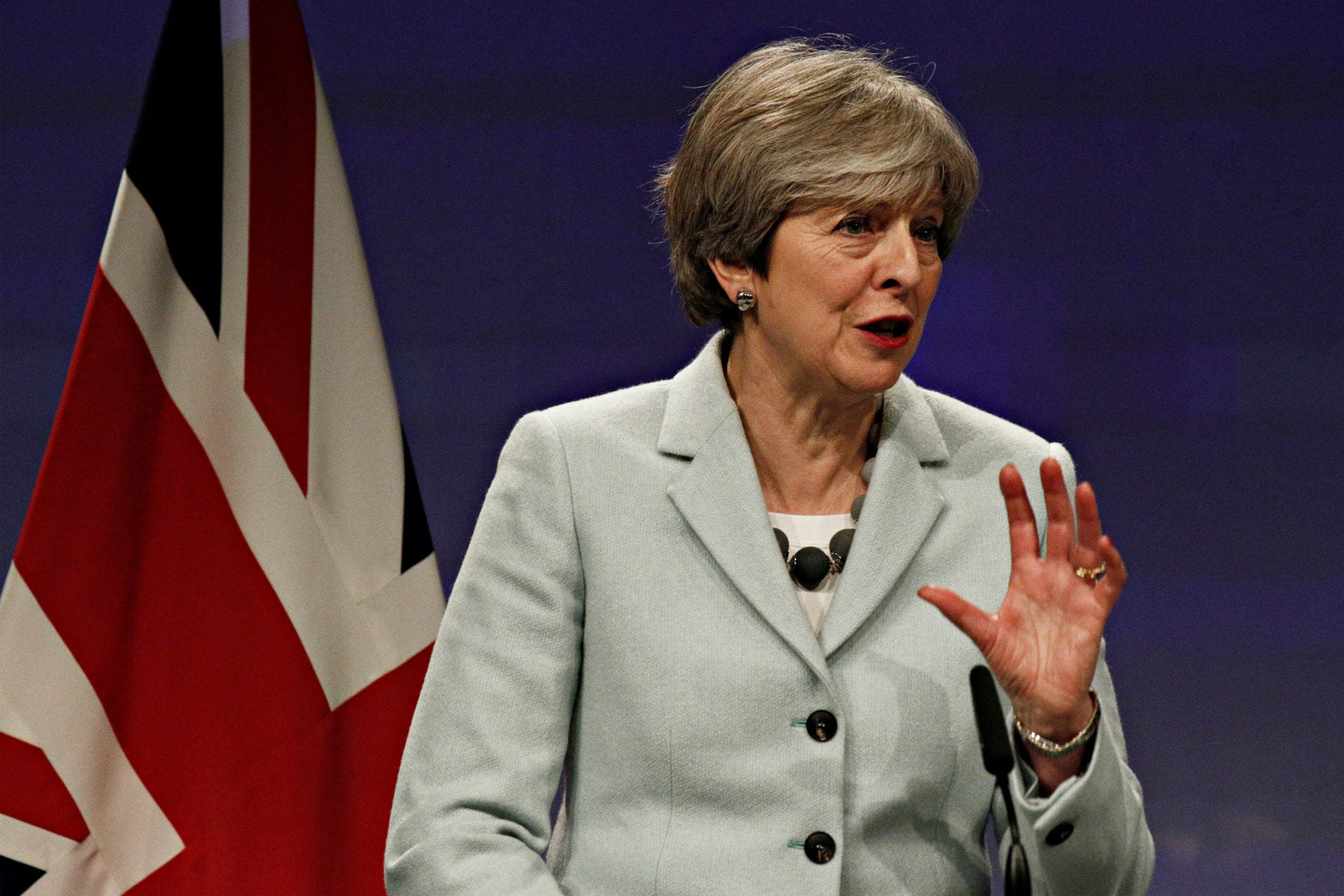
Theresa May has doubled down on her draft Brexit deal, reaffirming that it fulfils the promises of the referendum and provides the “certainty that businesses need”.
Speaking at the Confederation of British Industry (CBI), a UK business organisation that represents the interests of 190,000 UK businesses, she said that she had an intense week of negotiations ahead, culminating at a special meeting of the European Council on Sunday.
She added that she is “confident” that she can strike a deal to take back to the Commons.
However, the CBI speech follows a turbulent week in which a number of cabinet ministers resigned and members of her own party submitted letters of no confidence in her leadership in response to the 585-page draft Brexit deal.
Across the rest of the parties, she is unlikely to receive enough support to get the draft deal approved by the House of Commons.
Critics of the deal argue that it satisfies neither the Leave or Remain side.
Reactions from the CBI crowd were largely positive, with some praising her resilience.
However, one audience member slammed the withdrawal agreement for “locking us [the UK] into the EU regulations on a permanent basis” and asked her to “think again”.
May responded that his view was “a little inaccurate.”
This morning, the CBI director general warned that the UK is losing out on investment because of Brexit.
May doubles down on Brexit deal
May spent most of the speech reiterating that the deal gives the UK control over its borders, money and laws, as well as taking the UK out of EU programmes that do not work for “UK interests”, such as the common agricultural policy.
On immigration, she reaffirmed that a post-Brexit immigration policy will put skills first.
That includes a more “streamlined” application and entry processes, including the use of e-gates for non-EU countries such as the US and Japan.
On goods, she said that the outline future framework agrees to the creation of a “comprehensive free trade area with the EU”.
Across all goods sectors that means zero tariffs, no fees, charges or restrictions. She said the reason for this was to ensure the smooth running of just in time supply chains with the UK’s closest trading bloc.
“While the world is changing fast, our geography is not,” she said.
“Europe will always be our most proximate goods market and ensuring we have free-flowing borders is crucial.”
She explained how technology presents different opportunities in the services sector and therefore requires a “different approach”.
She also described the preliminary trade arrangements in services as “more ambitious than any existing free trade agreement” that will deliver a “level of liberalisation that goes well beyond WTO terms”.
Above all, May stressed that the deal would provide certainty across the board, including digital, financial, intellectual property, in transport and energy.
Read more: What does the Brexit withdrawal agreement mean for business?







